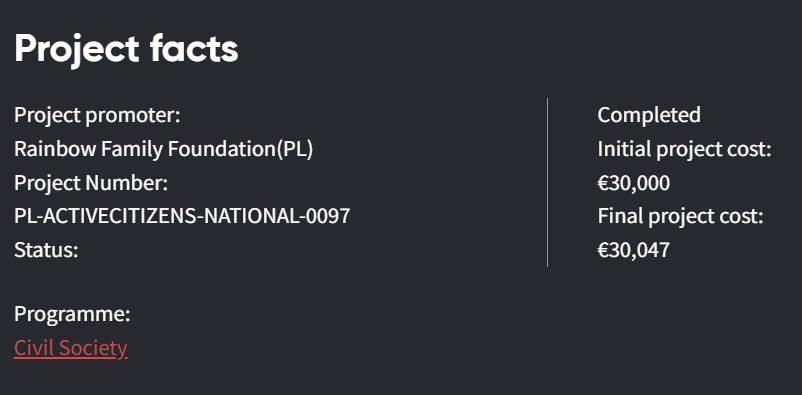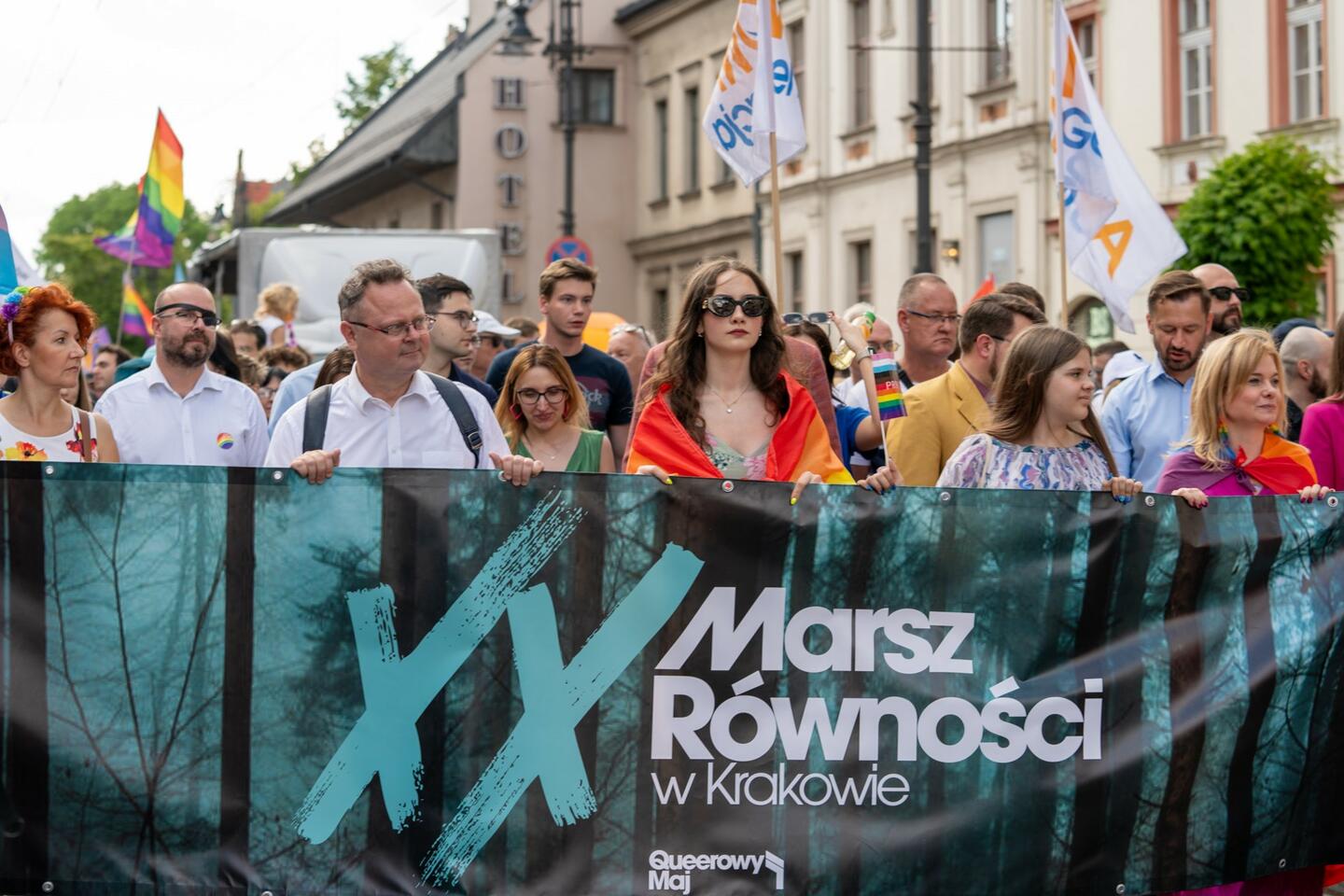Despite progress, many LGBTQIA+ persons are still denied their rights to equality. According to a survey conducted by the European Union Agency for Fundamental Rights in 2023, 36% of respondents felt discriminated against that year, and 11% were physically or sexually attacked. They face discrimination at work, in schools, in hospitals, and within their own families.
One of the countries where this is the most prevalent is Poland: “According to the 2024 report from the International Lesbian, Gay, Bisexual, Trans & Intersex Association, Poland is the most homophobic country in the European Union,” says Ewelina Dańko, Regional consultant and project supervisor at the Active Citizens Fund – Regional in Poland.
Poland’s LGBTQIA+ community has encountered significant challenges in recent years, with Human Rights Watch stating in 2022 that the past government lead by the Law and Justice (PIS) party, attacked the rights of LGBTQIA+ people in the context of its broader attacks on the rule of law. The emergence of ‘LGBTI-free zones’ and the lack of central administrative response to discrimination have created an environment where inequality persists.
Fortunately, tides are changing in Poland as the newly elected liberal government led by prime minister Donald Tusk has promised to legalise same-sex civil unions, and local Polish governments are increasingly concerned with equality policies, evident with the new Mayor of Krakow, Aleksander Miszalski, raising the rainbow flag at Krakow city hall and attending the Equality March 2024 – as the first Mayor in Krakow’s history – together with Katarzyna Kotula, Minister for Equality.
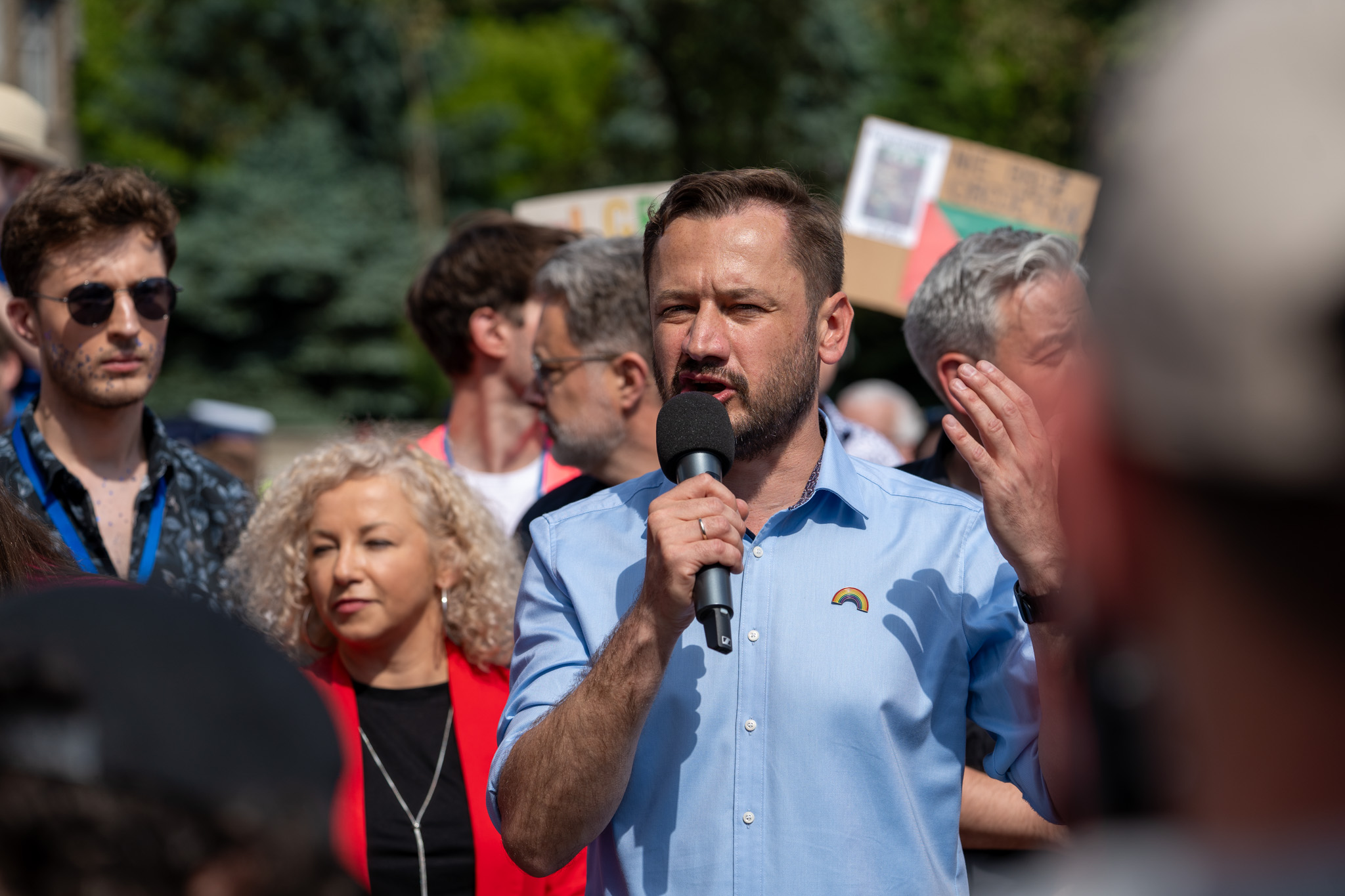
However, these changes are primarily in the larger urban cities, and there is still a long way to go to ensure equality for all regardless of gender or sexual orientation. Therefore, programmes such as the Active Citizens Fund are essential.
Through the Active Citizens Fund, many organisations and projects across Poland receive vital support for their work in promoting human rights. Two of these projects are tackling challenges faced by the LGBTQIA+ community head on: The right to assemble and stand up for your rights and the right to love and build a family together.
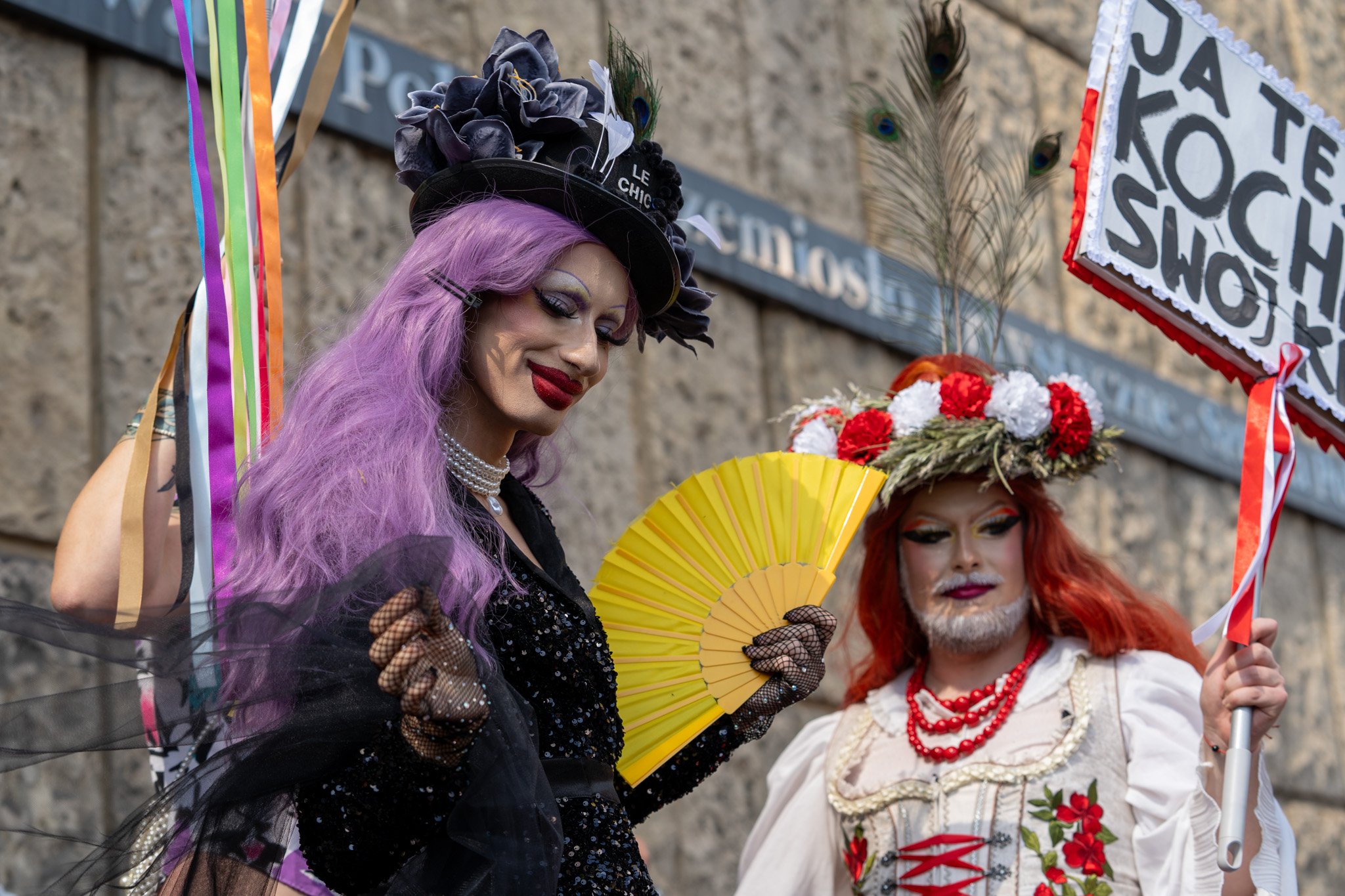
Loud and proud
Since 2018, Poland has witnessed an alarming trend: more than a dozen bans on equality marches, which are critical platforms for the LGBTQIA+ community, women's rights groups, and advocates for judicial independence. These bans represent a significant threat to the right to public assembly, prompting urgent action from civil society.
That is why the Equality.org.pl Foundation in Poland carried out the project titled 'A Long March Towards Equality: Monitoring and Securing Freedom of Assembly', with Oslo Pride and Reykjavik Pride as partners through the Active Citizens Fund.
Funding for LGBTQIA+ civil society organisations were always limited in Poland. The support of the EEA and Norway Grants are vital for organisations like ours to maintain our operations and make a change Artur Maciejewski, Board member of the Equality.org.pl Foundation
The project examined the practices and attitudes of police and local governments towards freedom of assembly in six polish cities. There was also arranged two networking meetings where people shared experiences related to the right to demonstrate, the legal framework, as well as receiving training in monitoring and observing of public gatherings. “We wanted to be prepared before the change of power in October last year and to have guidelines on how to protect and safeguard the freedom of assembly in Poland,” says Maciejewski.
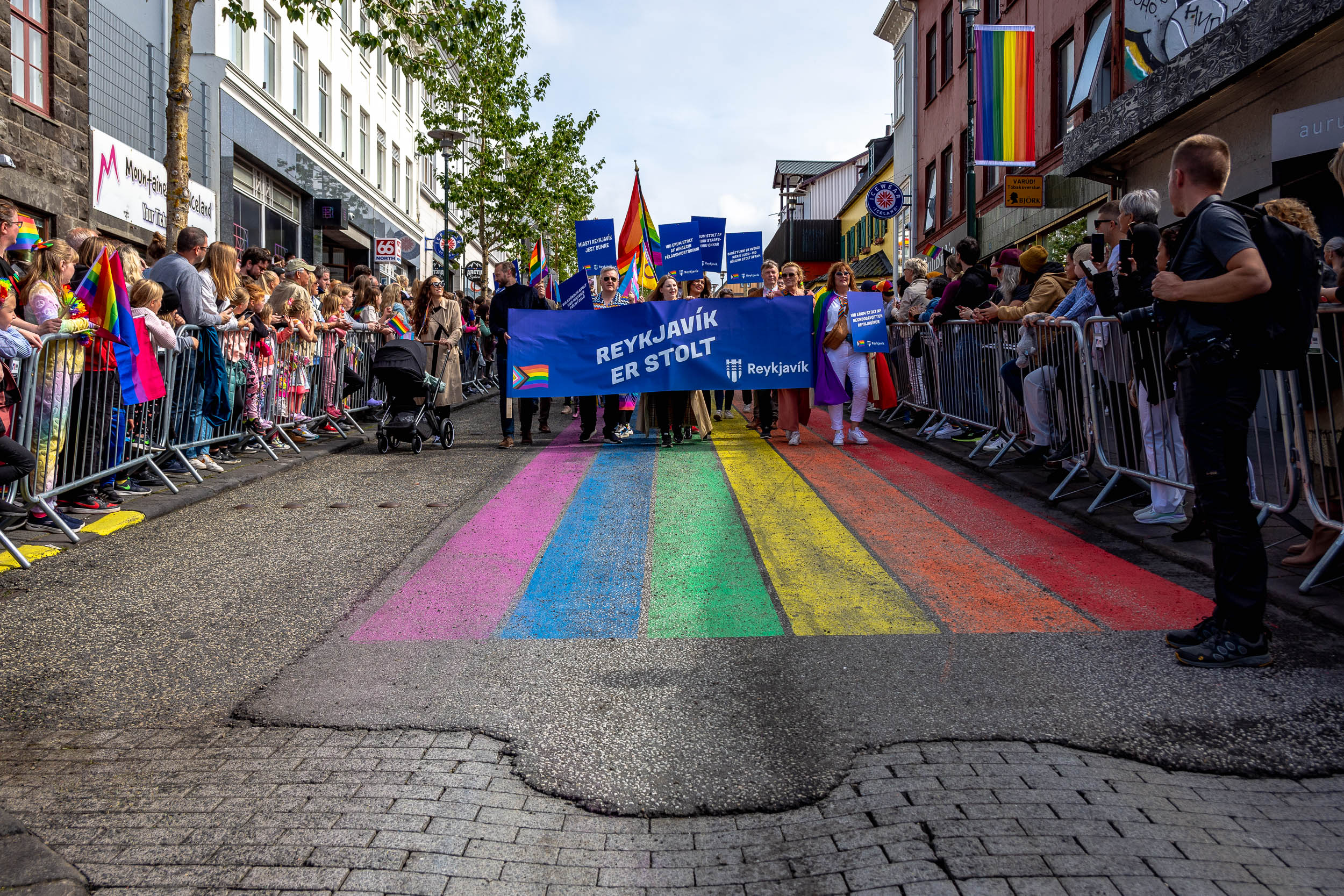
United in the fight
An important aspect of the project was the international partnerships with Reykjavik Pride in Iceland, and Oslo Pride in Norway, where the rights of LGBTQIA+ also are under attack. An example of this is the mass shooting that happened just the day before the Oslo Pride parade in 2022.
“Rights that we have previously fought for and acquired are being ripped away from us and the rise in prejudice and hatred is evident, even in countries such as Iceland, with its perceived status as an equality paradise,” says Inga Auðbjörg Straumland, project partner at Reykjavik Pride.
The cooperation between the Equality.org.pl Foundation, Reykjavik Pride and Oslo Pride has been a valuable opportunity to share experiences, generate ideas, find solutions, and get a more comprehensive understanding of the difficulties facing the LGBTQIA+ community.
“Hearing them explain how systemic the prejudice is, even regarding the practical planning of a Pride event, was quite eye-opening to me, and served as a reminder of the importance of our work, and how far we can come if we join forces,” Straumland continues.
As a project partner, Oslo Pride participated in the Warsaw and Krakow Equality Marches in 2023 alongside the Equality.org.pl Foundation and hosted their partner organisation for Oslo Pride that same year.
“It matters a great deal for our Polish partners such as the Equality.org.pl Foundation that someone from the outside world is there for them and cares about them, so they don’t stand alone. It is also a great inspiration on a personal level to see what they are achieving for the queer movement,” says Stein Runar Østigaard, International Coordinator at Oslo Pride.
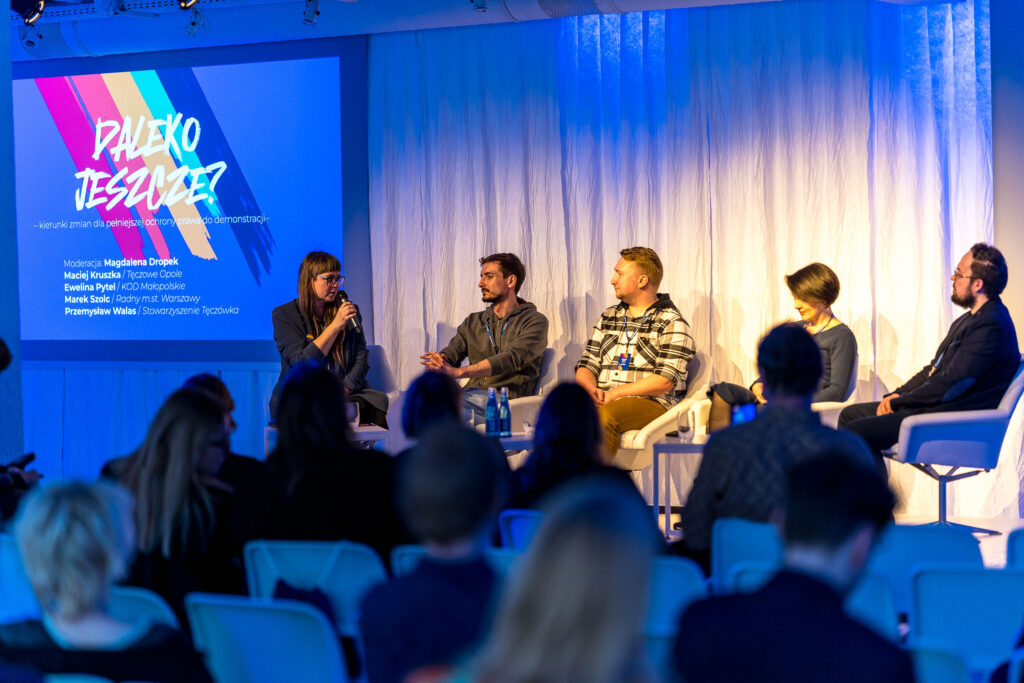
The result of the project is a report on freedom of assembly in Poland, which aims to deepen the understanding of freedom of assembly, while considering local perspectives and the discrimination faced by marginalised groups such as the LGBTQIA+ community. It also provides recommendations for improving the legal and institutional framework to ensure equal rights and protection against discrimination.
One step closer to equality
The right to love and family regardless of sexual orientation or gender is a crucial fundamental right. A critical part of this is the ability to ensure legal recognition for same-sex couples and their children.
That is why the Active Citizens Fund supports the project 'Rainbow Families Area - integration, awareness-raising, empowerment', a crucial hub for integration, awareness-raising, and empowerment for LGBTQIA+ families, often referred to as Rainbow families, all over Poland.
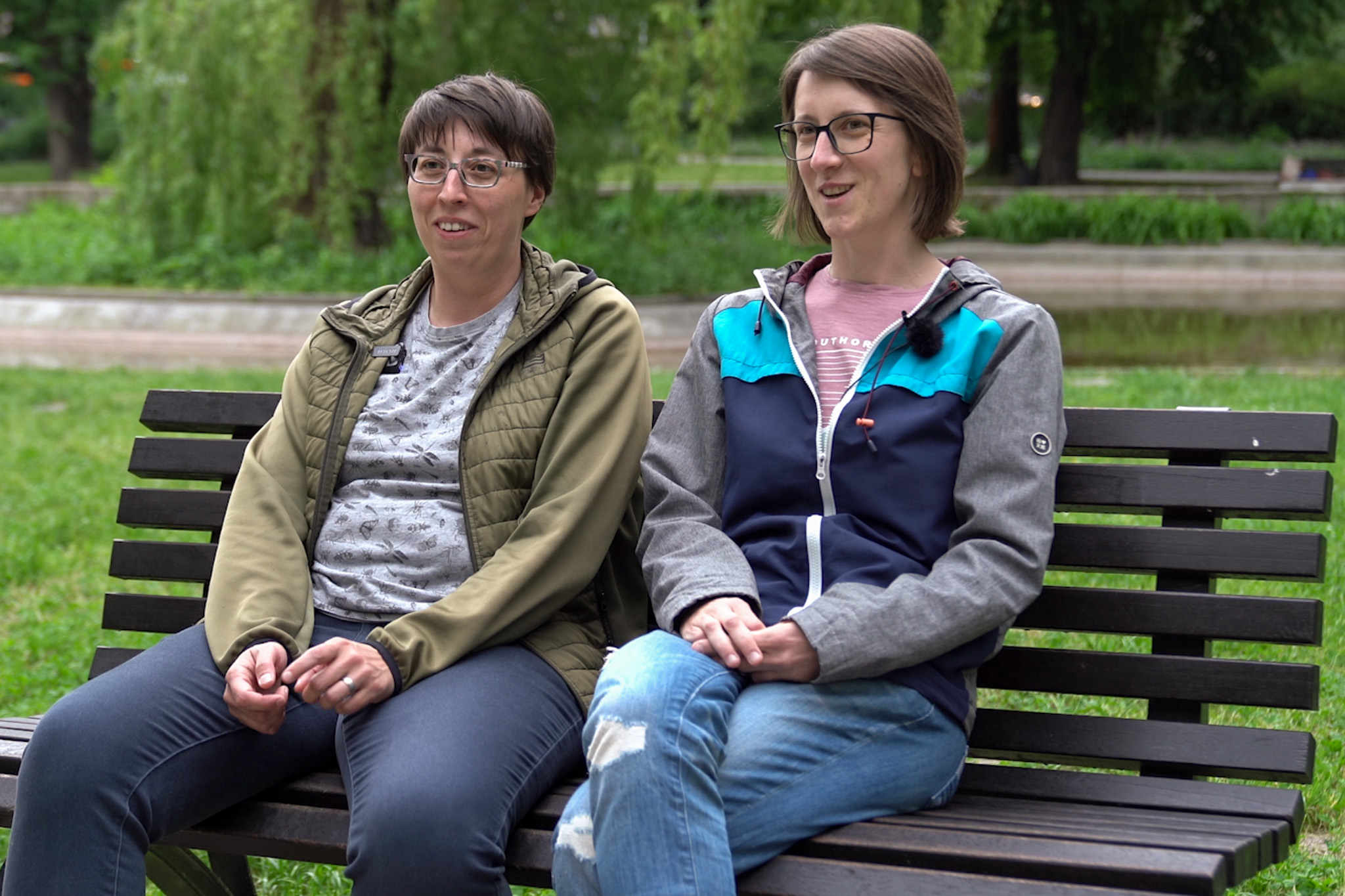
Facing significant challenges regarding their recognition and rights, this project was established by the Rainbow Families Foundation to provide a safe and supportive environment. One of the families that took part in the project was Karolina Judka and Dorota Maraj-Judka and their six-year-old son Tymon.
This experience brought significant changes for both my family and me personally. It was wonderful to connect with other rainbow families, as we only have a few friends who are also part of rainbow families. Thanks to the project, we had the opportunity to meet many more rainbow families and share our experiences, discussing topics that we usually don't talk about with others. Friends who aren't LGBT, or they are but don’t have kids, often can't relate to our daily struggles and issues. Karolina Judka, participant in the Rainbow Family Areas project
Fostering belonging and acceptance
The Rainbow Families Areas project fosters belonging and provides practical assistance through workshops, legal counselling, and cultural events promoting diversity and acceptance. It also advocates for LGBTQIA+ families by raising awareness of their challenges and lobbying for equal rights.
A key aspect of the project is its empowerment program, which encourages individuals to share their stories, build confidence, and develop leadership skills, thereby strengthening the community and facilitating dialogue with broader society: “After participating in a weekend workshop, I became more active in the community. I decided to join the organisation, volunteering at various events. I have continued to stay involved, actively helping our community,” says Judka.
Supporting civil society across Europe
These two projects, supported by the Active Citizens Fund, are crucial in fostering equality, integration, and empowerment for LGBTQIA+ communities in Poland and across Europe, as well as promoting a strong civil society.
“We are pleased that under the Active Citizens Fund - National we have been able to support the diverse and important activities of civil society organisations, such as: social campaigns, legal aid and psychological support, monitoring initiatives or coalitions, that did not receive funding from other sources,” says Sylwia Sobiepan – Director of the Active Citizens Fund - National.
The Active Citizens Fund supports civil society by strengthening its role in promoting democratic participation, supporting active citizenship and protecting human rights, with 10 percent of the EEA Grants allocated to civil society. To learn more about the EEA and Norway Grants work for civil society, please visit our website for the Active Citizens Fund.
A long march towards equality. Monitoring and securing of freedom of assembly
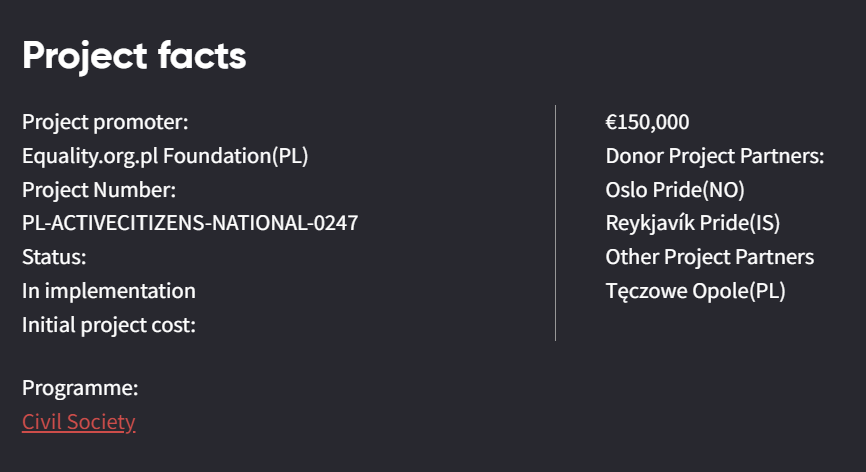
Rainbow Families Area - integration, awareness-raising, empowerment
